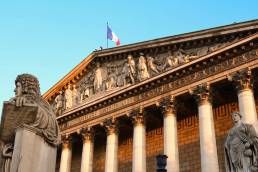Davor Ivo Stier, Croatia joined the EU in 2013, which means it has now been a member for ten years. How has the Country changed, and what are its current social and economic priorities?
The last ten years have changed a lot of things in Croatia. From a geopolitical perspective, for us the EU and NATO memberships were strategic goals. We made political choices in that direction immediately after our independence, as we were aiming for an independent Croatia that would be part of the “political West”. The resulting access to the Eurozone and the Schengen Area are now allowing us to move gradually to a more central stage, at the centre of the European integration process.
In this respect, we would like to further increase the centrality of Croatia and our influence in the European context by enlarging the EU to the Western Balkans. It is the same kind of goal that e.g. Italy or Germany had after the end of the Cold War, when they wanted to move the EU border further to the East, like the Polish are doing now vis-à-vis Ukraine. It is important that the European peace project does not stop with our accession, because we do not want to be the guardian of the European external borders forever. On the contrary, we wish to move these borders to the South-East by incorporating the Western Balkans into the EU.
With regard to the social and economic conditions in the country, there have been several changes. Integration into the European single market helped our small and medium-sized companies to increase exports and eliminate the chronically huge deficits in Croatia’s balance of payments. The GDP per capita was also increased from 61 per cent to 72 per cent of the EU average. The use of EU funds is an essential element in the transformation of Croatia’s economy into a more digital and green one. Obviously, there is still much to do, but a clear majority of Croats support European integration.
On the occasion of Croatia’s entry into Schengen and the Eurozone, Ursula von der Leyen said that these steps contribute to the consolidation of a common European identity, beyond borders. Do you think that Croatia also feels part of this common European identity?
Croatia’s accession to Schengen and the Eurozone is proof of the European project’s attractiveness. The support for joining the Schengen area was nearly consensual, while joining the Euro currency generated both critical and supportive positions. In particular, sceptics argued about the risks of joining the common currency at a time of global high inflation. Nevertheless, during the parliamentary debates, the majority considered that the advantages of the Euro outweighed the disadvantages.
As Ursula von der Leyen’s words well describe, by joining Schengen and the Eurozone, Croatia also strengthened its European vocation, a vocation which was already well established in the country, even before its formal accession to the EU.
„In my view, as a Christian-democrat, European identity finds its roots in the Judeo-Christian values, which are essential to understanding the nature of our free and democratic societies. The heritage of Jerusalem, Athens and Rome, as three pillars of our identity, have essentially shaped Europe’s understanding of the dignity of the human person, democracy and the rule of law.“
But what does “European identity” mean for you? What is it made of?
In my view, as a Christian-democrat, European identity finds its roots in the Judeo-Christian values, which are essential to understanding the nature of our free and democratic societies. The heritage of Jerusalem, Athens and Rome, as three pillars of our identity, have essentially shaped Europe’s understanding of the dignity of the human person, democracy and the rule of law. We believe in free societies, where Governments do not control the life of individuals and communities. I see the European Union as the defender of these values, especially when they are challenged by autocratic regimes like Putin’s Russia.
How did politics and economics react to the adoption of the Euro? Some people saw the Euro as a useful tool for the Croatian economy, but on the other side, Croatian institutions no longer have complete control of the national currency. How do Croatian citizens and enterprises view this sort of “less control for more benefits” exchange?
Actually, since 1994 the Croatian national currency was linked first to the Deutsch Mark and then to the Euro. We were, therefore, already linked to external currencies before formally adopting the Euro. Large parts of the population were already taking out loans or saving in Euros, so we can say that the economy was de facto functioning as part of the Eurozone, at least to a certain extent. Croatia benefited from joining the Eurozone, especially with regard to interest rates and the country’s credit rating. It is also true that the Kuna, as the national currency, was also a sentimental issue, a symbol of national sovereignty. However, from a strict economic point of view, we had not been making use of that monetary sovereignty since 1994.
According to some reports prices have been increasing in Croatia since joining the Euro. Do you think that this could affect e.g. tourism in the next summer season, since services and goods will probably become more expensive?
I actually think that Croatia’s tourism will benefit from our accession to both the Eurozone and the Schengen area. The conversion of prices from Kunas to Euros was expected to have an inflationary effect, as was the case in other countries before. However, in those previous cases the adoption of the Euro took place when the overall inflation rate was not as high as it is today. The Croatian Government reacted to the first inflationary effects by sending inspections to control how the currency conversions took place, based on the special law on conversion. This law also prescribes that prices should be shown in both Kunas and Euros in order to allow customers to compare the prices before and after the conversion. In any case, since most tourists come to Croatia from countries in the Eurozone, the adoption of the common currency will facilitate their decision to spend their holidays in our country. We can also expect a positive effect from the elimination of border controls after our accession to the Schengen area.
Reports indicate that Croatian public opinion is predominantly positive when it comes to Croatia’s participation in the EU, Euro and Schengen. On the other hand, in recent years, other EU countries, both founding and newly acceded, have seen the rise of Eurosceptic parties. How do you explain this situation? And what can be done to fight against the risk of a greater spread of Euroscepticism also in Croatia in the coming years?
Croatia is obviously not an island. We cannot prevent euro-sceptic views from affecting our political environment. However, the main political forces in Croatia remain committed to the European project. In my opinion, it is essential that the pro-European centre-right and centre-left continue to compete with each other, rather than allowing right and left extremes to dominate the public scene and the political dialectical struggle. The centre-right and centre-left have different political programs and identities, while sharing the same strategic approach to Europe. We have to show the difference in our programs, because this is healthy for democracy. In some EU Member States this difference between centre-right and centre-left has probably become less evident, and somehow the electorate looked for alternatives in the extremes. In addition, I believe that the European institutions should pay far more attention to the principle of subsidiarity and focus primarily on areas that require a common European policy, while leaving divisive ideological issues to the national level and respecting the cultural identity, social and institutional traditions of every Member State.
Croatia is now the external border of the EU in the Balkans. This places a lot of responsibility on Zagreb for the management of its borders: is this something that worries the Croatian government and institutions, or do you think it will be possible to manage this issue without too many difficulties?
We have been preparing ourselves for this role of managing the external border of the EU and the Schengen Area. It is a very relevant challenge, because we are dealing with a very long border – the border with Bosnia-Herzegovina alone is over a thousand kilometres long. So far, the Croatian police have been managing its tasks very successfully without resorting to the construction of any kind of wall or fence. Due also to our cooperation with our neighbour countries like Bosnia-Herzegovina, we will not be in favour of building walls or barriers on our external borders. We ensure a strong presence of border police officers, who are well equipped, also thanks to European funds.
Some humanitarian and human rights organizations have criticized the European institutions for not considering alleged human rights violations and pushback practices against asylum seekers by the Croatian security authorities. How do you react to this criticism?
We stressed in the Croatian Parliament that managing the external border cannot take place without full respect for international humanitarian law. We requested the Interior Minister to come to Parliament to report on this topic. Parliament was concerned about it and the Government responded by establishing an independent mechanism composed of academics and NGO representatives, in order to monitor the activities of the border police and address any failures and shortcomings. This was taken into account by the European Commission, the European Parliament and the EU Member States when they decided to invite Croatia to join the Schengen area. The Government provided assurances that control of the national border will take place in full compliance with international humanitarian obligations.
What is Croatia’s position on the most pressing European dossiers, such as migration management and green deal policies? Do these issues and provisions worry the Croatian public opinion or are they viewed favourably?
Croatia has joined Italy and other EU Member States in stressing the importance of a European solution to the migration issue. We need a common approach, not to stop but to manage migration flows and address the illegal crossing of borders. But we will still have to work hard to find a consensus on the proposed Pact on Migration and Asylum. With regard to green policies, we believe that the Next Generation EU must be used to support measures for making the European economy more sustainable, without losing the competitiveness of the European manufacturing sectors.

Copyright Header Picture: shutterstock/rarrarorro
Copyright Picture Author: Davor Ivo Stier
Könnte Sie auch interessieren
9. Juli 2024
Konstantin von Notz : „Es ist Zeit, unsere Demokratien sehr entschlossen aufzustellen“
Er steht seit diesem Jahr an der Spitze des Geheimdienstausschusses des…
1. Juli 2024
European Parliamentary Elections: A Debacle for Pro-EU Parties or Their Last Chance?
Between 6 and 9 June, 400 million Europeans voted in the European Parliamentary…
24. Juni 2024
Dissolution of Parliament: Good or Bad for Democracy?
An hour after the results of the European elections, Emmanuel Macron announced…


